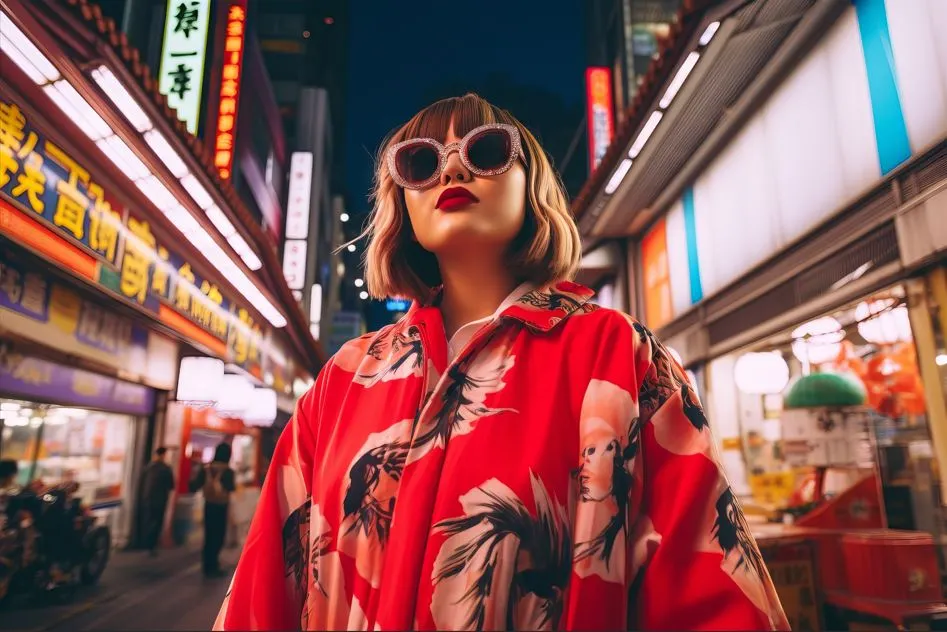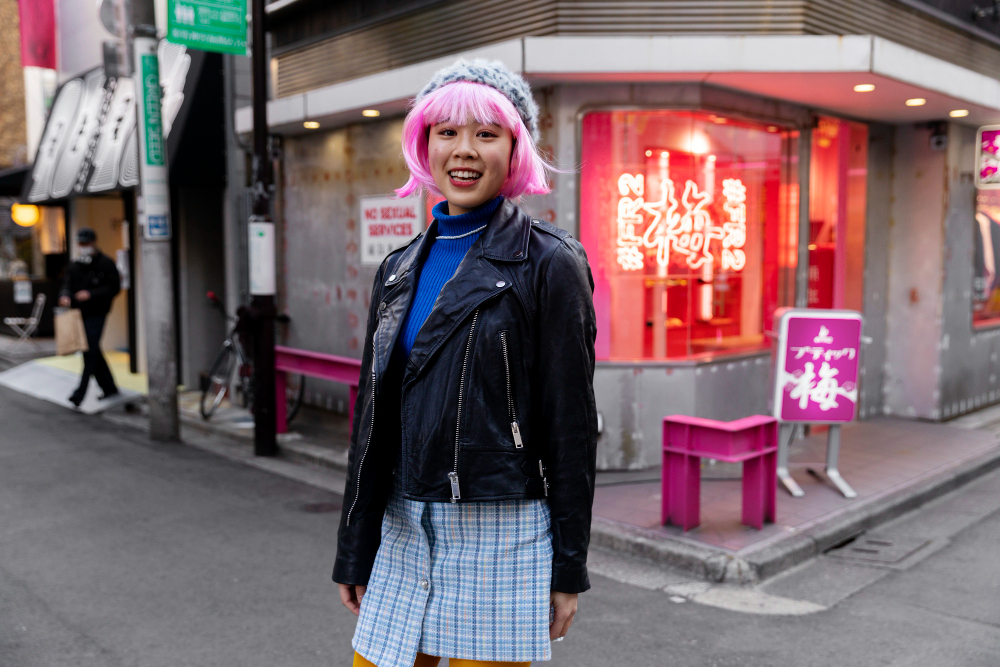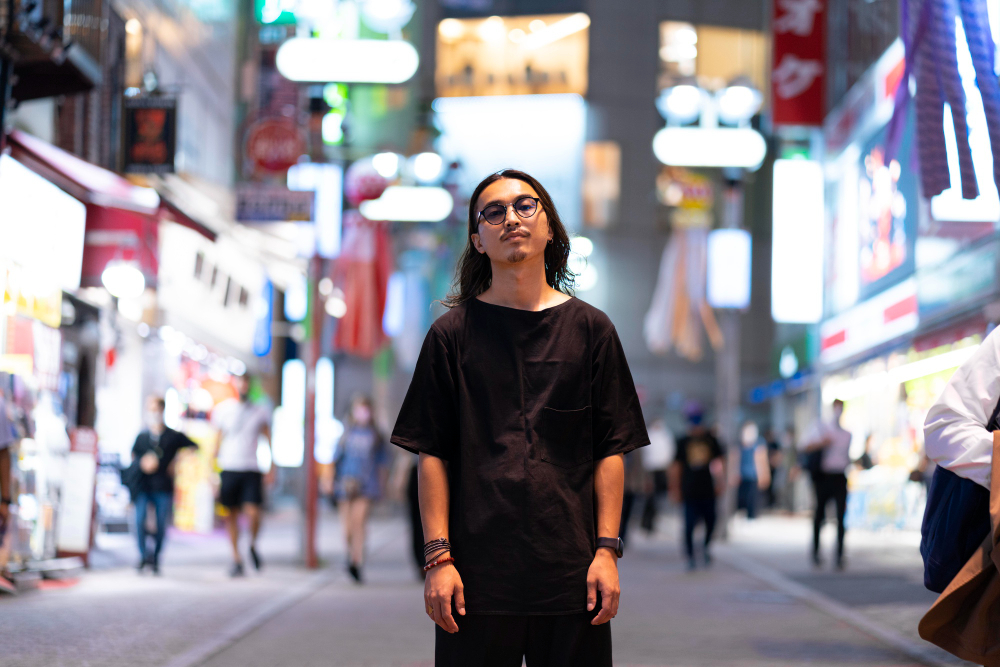Summary
- Though always at the forefront of global design, Japan fashion is more than just trends.
- It’s a story of creativity, culture, and courage to break the rules.
- Stand out in the fashion world with Audaces360 technology. Start your free trial now!
Over time, Japan fashion has built a world of contrasts, where tradition meets the unexpected. This mix has turned Japanese design into a unique art form that captures attention and serves as inspiration.
In the next lines, we’ll explore the influences that shaped this rich history. You’ll see how local culture, art and even philosophy have left their mark on every cut and silhouette. You’ll also discover the traits that make these designs so unique.
Everything you need is here: cultural influences, iconic moments and the most relevant designers of Japan fashion.
Enjoy the reading and let this journey spark new ideas!
Sumário
Why learn more about Japan fashion?
Japan’s culture is incredibly rich and full of contrasts with the West. Fashion is no different, which is why drawing inspiration from Japanese fashion can be so fascinating.
When you look closer, you see how deep it goes. Designs are shaped by beliefs, nature, and the search for beauty. It’s not only about trends but about meaning and expression.
You can find people wearing styles that come from old traditions and modern ideas. This mix creates something unique that inspires the world.
Learning about Japan fashion also helps you see why it stands out. You can also discover how it keeps changing while staying true to its roots.
Learn more: How does the Asia Pacific market impact fashion?
A brief history of Japan fashion
Japan fashion has a long and rich past. For centuries, clothes showed status, family ties, and respect for rituals. Each color, shape, and pattern had a different meaning.
During the Edo period, style became part of daily life. Simple lines and natural fabrics were common, but details still showed great skill.
Later, Western culture started to influence local style. This brought new fabrics, cuts, and ways to wear clothes, opening doors to fresh ideas without losing the old touch.
In the late 20th century, Japanese fashion surprised the world. Designers mixed tradition with bold shapes and new ideas. They made people see clothes as art, not just something to wear.
Today, Japan fashion still honors its past while looking forward. This balance keeps it special and always new.
Cultural influences that shaped Japan fashion

Vedic traditions and Hinduism
Ancient Indian culture had a strong focus on symbols and meaning. In Hinduism, clothing often showed purity, power, or the spirit. These ideas reached Japan through trade and Buddhism.
Flowing shapes, natural colors, and soft fabrics found a place in Japan fashion. The use of draped garments also came from these roots. It inspired loose, layered clothing that many still wear today.
Over time, Japanese designers gave these ideas a new look. But the calm, spiritual feel stayed in many traditional pieces.
Learn more: Learn the art of natural dyeing and its essential techniques
Islamic culture and the Mongol Empire
The Mongol Empire connected East and West. Through their trade routes, new fabrics and styles arrived in Japan. Meanwhile, Islamic culture brought rich patterns and fine textiles, like silks, embroidery, and strong colors made a big impression.
Though Japan often kept a simple look, some royal and noble styles took in these rich details. You can see it in ceremonial clothing, for example.
These touches added depth to Japanese fashion. It became a blend of elegance and restraint.
British colonialism
In the 19th century, Japan opened its doors to the West. British culture came fast and strong, along with other European ideas.
By this time, people began to wear suits, dresses, and shoes from the West. Tailoring and structure also became more common in Japan fashion.
At the same time, people held on to their own traditions. Many chose to mix Western pieces with local garments. This mix helped Japan fashion grow in new ways. It showed that Japanese style could evolve while staying true to itself.
5 key characteristics of Japan fashion

1) Avant-garde spirit
Japan fashion often dares to be different. Designers from the country play with shapes, volume, and texture. Clothes become more than daily wear: they become ideas you can see.
This bold spirit started in the 1980s. It shocked the world and made people look at fashion in a new way. Even today, many brands keep this fearless style alive.
They mix tradition with surprise and challenge what clothes can be. This avant-garde view keeps Japan fashion fresh and full of energy. It’s a sign of creativity without limits.
2) Minimalism
Simple lines and quiet colors are part of Japan fashion. This love for minimalism comes from deep cultural roots.
Designers use this aspect representing few elements to say a lot. Shapes feel calm, balanced, and clear. But don’t think the style is plain! It actually shows great skill and respect for space and form.
Through minimalism, Japan fashion becomes timeless and elegant. It speaks softly, but with power.
3) Experimental approach
Japanese designers are famous for trying new things, especially the young ones. The approach creates clothes that feel fresh and unexpected. It keeps the style from becoming boring.
Some mix modern cuts with old traditions, while others use new technology to make something original.
Either way, this experimental side makes Japanese fashion a place of discovery. It invites people to see fashion in a new way.
4) Streetwear culture
Streetwear has a big place in Japan fashion. It started when young people turned daily clothes into something bold and free. They mixed sportswear, vintage pieces, and bright prints.
This became part of the city’s look, and big brands and small shops alike joined in, shaping trends worldwide.
Today, street style from Japan still inspires new collections and keeps fashion close to everyday life.
5) Attention to detail
Japan fashion pays great attention to small things. Stitching, lining, and fabric choices, all these little things matter. Even simple pieces often hide careful work.
This care comes from craft traditions passed down over time. Designers add quiet details that make each piece special. They believe true beauty lives in what isn’t loud.
Learn more: Discover Indian fashion with stories, styles and designers
Japanese designers who made their mark

Hanae Mori
Hanae Mori was a true pioneer in Japan fashion. She was known for elegant designs that mixed East and West.
Her butterfly motifs became iconic worldwide. Mori also made history as the first Asian woman to join the Paris haute couture club.
Issey Miyake
Issey Miyake loved to blend technology with tradition. His famous pleats created clothes that moved beautifully — and became a hit on red carpets.
He always looked for new ways to make fabric come alive. Miyake’s work changed how people see shape and texture in fashion.
Ready to design with the same punch as your fashion idols? 3D technology can get you there! Download our comprehensive e-book and find out how!
Rei Kawakubo
Rei Kawakubo is the creative force behind Comme des Garçons. Her designs often challenge what people expect from fashion.
Kawakubo uses bold shapes, black tones, and unusual cuts. She turned imperfections into a unique, artistic language.
Learn more: Uncover the impact of designer Stella McCartney on fashion
Yohji Yamamoto
The designer became famous for his oversized silhouettes and deep black fabrics. His clothes often look simple but carry great meaning.
Yohji Yamamoto loves to play with balance and volume, creating pieces that are both timeless and daring.
Kenzo Takada
Kenzo brought color and energy to global fashion. His patterns blended Asian and Western styles in joyful ways. He was also the first Japanese designer to win over Paris.
He built the Kenzo brand into an international name. Even today, it stands for playful spirit and vibrant prints.
Jun Takahashi
Jun Takahashi founded the label Undercover, with a style that blends punk, art, and streetwear into something fresh.
He also designs activewear for men and women in partnership with Nike, under the label Nike x Undercover Gyakusou.
Learn more: Inside the career of Indian designer Manish Malhotra
Nigo
Nigo is best known for creating A Bathing Ape (BAPE). His designs helped shape modern streetwear worldwide.
He mixes pop culture, bold logos, and Japanese creativity. Nigo also works as a music producer and keeps crossing fashion with music.
Chitose Abe
Chitose Abe launched Sacai, known for hybrid designs. She mixes textures, shapes, and even two garments into one.
Her clothes feel modern and unexpected. Recently, her collaboration with Levi’s caught the attention of the fashion world. Abe’s work proves that innovation can remain elegant.
Tomo Koizumi
Tomo Koizumi became famous for his sculptural dresses made of colorful ruffles.
His pieces feel like wearable art, celebrating volume and drama in every look. Koizumi’s style proves that fashion can be bold, fun, and poetic at once.
Learn more: 9 success stories of American fashion designers worldwide
How is technology transforming Japan fashion?
Technology is reshaping Japan fashion in many ways. Clothes are no longer just fabric, they can now react, cool, or adapt. This opens a new realm of purpose and innovation in design.
One notable example is air‑conditioned clothing. Inspired by workwear, it now appears in runway pieces. In 2024 at Paris Fashion Week, Anrealage introduced dresses with built‑in fans. It shows how tech and style can merge beautifully.
In design studios, new tools like 3D creation are common. Designers test forms, structures, and new materials fast, and save time with digital prototypes. This speed fuels creativity and helps bring ideas to life.
All of these tech shifts show where Japan fashion is heading, combining the digital and real. Fashion keeps evolving, and Japan leads the way.
Create and simulate fashion collections with the leader in technology
Audaces is a market leader fashion technology company and a reference worldwide. Through a deep understanding of fashion creation and production, we have developed ideal solutions for each stage.
Audaces Fashion Studio
Audaces Fashion Studio is a groundbreaking innovation for fashion designers within Audaces360 multisolution.
This innovative technology empowers professionals to create smarter sketches on a 3D mannequin. It provides tools and functionalities to enhance your design process.
Its features enable you to examine fit, drape, and movement in different body types. Explore fabrics, colors, textures, and apply prints in a few clicks.
Audaces Idea
Audaces Idea is your solution for creating and applying prints to your designs.
It helps end errors and streamline communication between design and the other teams. This way, you can reduce the development cycle and ensure timely deliveries.
Audaces Idea also includes integrated tech packs and automatic pre-cost calculations. You can visualize all your creation information on a single screen during the process.
Automating technical tasks frees up your time for more design exploration!
Audaces Sofia
Meet Audaces Sofia our cutting-edge fashion Artificial Intelligence. It helps you enhance your creations with an unlimited source of inspiration.
This solution has the power to transform concepts into reality in a matter of minutes. Some simple prompts are all you need to generate print variations.
Audaces Sofia integrates with Audaces Idea and Audaces Fashion Studio. This combination provides you with the complete solution to create effortlessly
Discover Audaces360 and unlock a world of possibilities for fashion design and production. Explore our comprehensive suite of solutions today!
FAQ
Japan’s culture is incredibly rich and full of contrasts with the West. Fashion is no different, which is why drawing inspiration from Japanese fashion can be so fascinating.
Influences include Vedic traditions and Hinduism, Islamic culture and the Mongol Empire, and British colonialism.
Some of the famous names in Japan fashion are Hanae Mori, Issey Miyake, Kenzo Takada, Nigo, and Chitose Abe.










